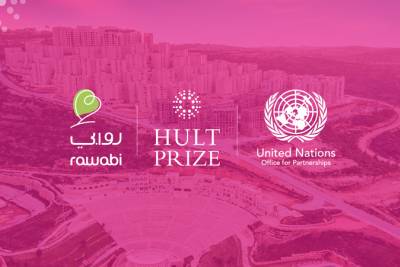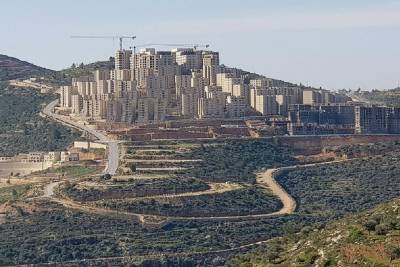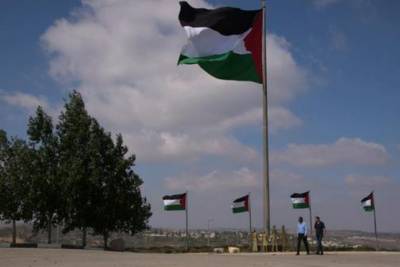Building an Economically Viable Palestinian State

Matzav - Jonah Naghi - With the common threats of ISIS and a nuclear-armed Iran, Israel and the Gulf States have come closer together the past few years. The Wall Street Journal’s report of the Gulf States’ recent proposal to strengthen ties with Israel in return for progress on the peace process with the Palestinians is the most concrete step they have taken to normalize relations. However, Israel and the Gulf States can go further by not only improving their relations as the peace process progresses, but also by cooperating on supporting an economically viable Palestinian state.
Israeli officials who are opposed to the creation of a sovereign Palestine in the West Bank and Gaza often reference the security threat that could result from a collapsed Palestinian state. They fear it would be a failed state, overrun by non-state Islamic militants that could use the territory as another launching pad for attacks. After running a simulation based on the criteria of the Fund for Peace, Eylon Aslan-Levy projects that if Palestine became independent tomorrow it would be the 15th most fragile state in the world just behind Pakistan. Thus, the establishment of a Palestinian state will not sufficiently promote regional security unless it is economically strong and successful.
The Gulf States and Israel can actually work together in this endeavor. With Israel strengthening the Palestinians’ economic autonomy and the Gulf States investing in Palestinian state-building initiatives, they could pursue the economic viability of a Palestinian state as a confidencebuilding measure leading up to a two-state solution. A couple of examples on how they can work together in this pursuit are the Rawabi Project and The Arc.
Rawabi is the first planned Palestinian city in the West Bank. Palestinian entrepreneur Bashar alMasri and the Qatari Diar, the investment arm of the Qatari government, are its primary donors. The city is estimated to provide up to 5,000 jobs and 40,000 residents, and it is a terrific example of how such initiatives can lead to the creation of a Palestinian state. When calling for US President Trump to visit the city in the making, former US Ambassador to Israel Daniel Shapiro said, “Rawabi is important not only for what it is, but what it represents: an alternative Palestinian future. Palestinians who have been stuck for generations in refugee camps or dilapidated cities with old-economy industries and poor prospects for expansion are stunned at the quality of life available to them.”
If Rawabi succeeds it could be replicated four or five times throughout the Palestinian Territories. However, the project has come at a standstill. In a recent report, Mr. Masri invested in a $450 million shopping center complex, the Q-Center, to attract foreign investment, but the center and the city as a whole is struggling due to Israeli military restrictions and a low budget as a private project. In order for Rawabi to succeed, Israel needs to strengthen the Palestinians’ economic autonomy, such as granting them more access to building connecting roads and water that overlap into Area C. Moreover, the Palestinians’ state projects need sufficient funding from donors such as Qatar and the other Gulf states. Shapiro goes onto say how “further Qatari financing is needed to see the project through to completion, and to attract additional investment for similar projects.”
Another Palestinian state project the Gulf States can invest in is the Arc. The RAND Corporation has proposed a comprehensive plan on Building a Successful Palestinian State, which would include the development of what they refer to as The Arc.
Currently, Palestinian cities in the West Bank are not adequately linked to each other, making it difficult to develop a future state. The Arc would link the Palestinians cities together and could help a Palestinian state succeed in several aspects. For instance, the Arc would enable cities to create new residential districts for at least 3 millions Palestinian residents, create telecommunication lines, toll roads, lines for electricity, facilities for water, and allow Palestinians more accessibility to jobs and educations.
RAND estimates that the development of Arc would cost about $9.4 billion. Such expenses can be assisted by the Gulf States. Last year, in a meeting with former Israeli general Yaakov Amidror at the Washington Institute for Near East Policy, Faisal AL-Turki of the Saudi royal family said how his country and the Arab world could help finance the Arc to make a future Palestinian state economically viable: “If that project can be put in place…and with joint IsraeliPalestinian cooperation, and with joint financing from the United States and world community, including the Arab world, that will go a long way to improve the lot of the Palestinians and give
them a state.”
The Gulf States have shown that they are willing to gradually improve ties with Israel leading up to what they hope will be a two-state solution. That being said, any bilateral agreement between Israel and the Gulf States should address the economic viability of a Palestinian state. Only through a two-state solution where the Palestinian state is strong and successful will regional security and peace be promoted.
To View original article, Click Here.



